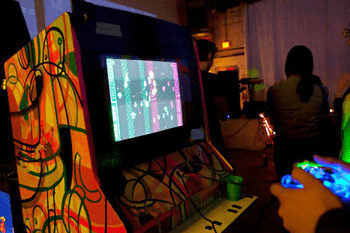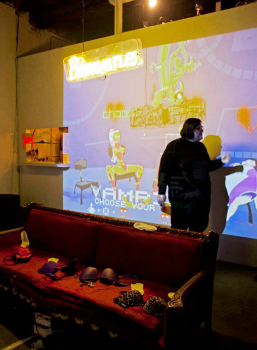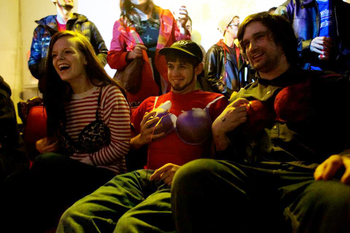According to the Entertainment Software Association, 72% of American households play videogames while, according to the Motion Picture Association of America, 67% of Americans went to the movies. If those figures are both correct, videogames might now be the great American pastime.
Just like with movies, videogames come in different sizes: the blockbusters with massive marketing campaigns, and the quirkier small releases that get known by word of mouth. But there is no Sundance festival, no Harvey Weinstein to find and promote the small releases.
"A lot of independence has to do with making something that doesn’t have a place yet," explains Ian Bogost. He teaches videogame design at University of Georgia and has a site that promotes niche games. A couple years ago, as a critique of smartphone games like Farmville, he designed the dumbest game he could think of: Cow Clicker. (The title says it all.) The game was a hit. "Much to my chagrin, clicking on a cow was actually a sufficient entertainment experience,” he concedes.
Game designer Anna Anthropy celebrates the potential of games to reflect personal experience. She's a transgendered woman whose game Dys4ia draws on her struggles with hormone replacement therapy. "There’s that level of empathy that comes from actually engaging with the rules and experiencing the frustration that I felt," Anthropy says.
And with game-making technology more accessible than ever before, Anthropy is excited about the other autobiographical videogames that could be in the works. "[Soon] you’ll be able to look on your grandmother’s game page and maybe play a game that she made about her cat. That might be totally mundane but it’s so totally beautiful."
Slideshow: Pop-up arcade
Music Playlist
-
Super Mario Bros: Theme
Artist: London PhilharmonicAlbum: The Greatest Video Game MusicLabel: x5 Music Group



